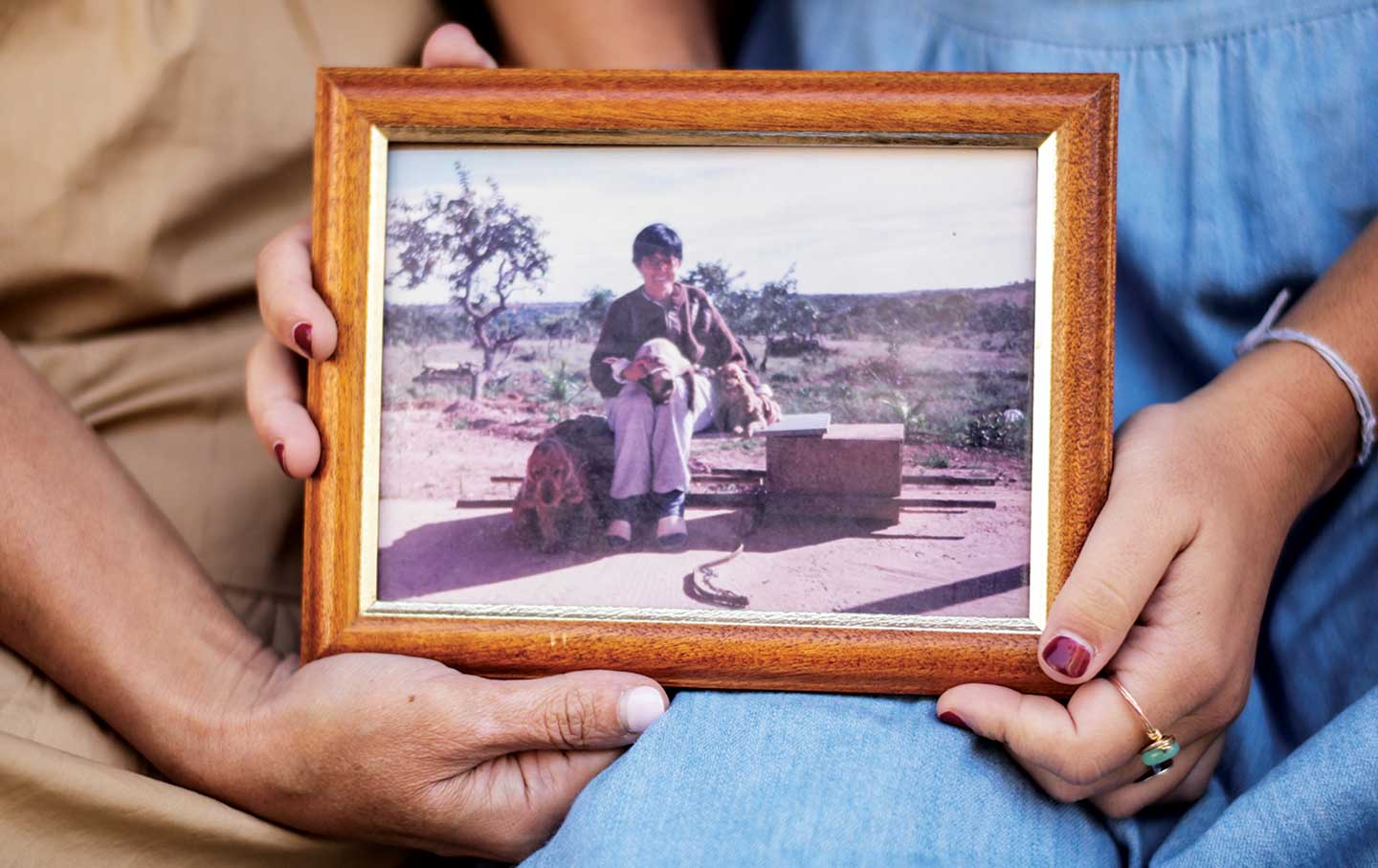Latin America
Related: About this forum50 Years Ago, My Family Fled Chile. This Year, I Returned.
SEPTEMBER 29, 2023
I went to Chile for the anniversary of the 1973 coup to trace the country’s painful history—and my own.
MARA MARQUES CAVALLARO

Presente!: Marques Cavallaro holding a photo of her grandmother.
(Pablo Unzueta)
This article appears in the October 16/23, 2023 issue, with the headline “Fifty Years Later.”
SANTIAGO—The day before the 50th anniversary of the coup that ousted Salvador Allende, I watched a father and his young daughter sitting quietly at the Museum of Memory and Human Rights. They looked solemnl
. . .
I spent the 50th anniversary of the coup crisscrossing Santiago, in protest and in vigil, with my mom and a caravan of other Brazilian former exiles. Like the children, we were here to witness a profound moment in history, but also to trace the lines of our own. I carried a framed photo of my grandmother, Tércia Maria Rodrigues Mendes, in my backpack. It was here, 50 years ago, that she lost her country for the second time.
She was 22 on the day of the coup, September 11, 1973—already a mother, a widow, and a refugee. Earlier that year, after the Brazilian military had tortured and killed her husband—my grandfather, Jarbas Pereira Marques—she fled Brazil’s dictatorship, traveling by bus to Allende’s Chile, the capital of a new political imagination. At the time, an estimated 12,200 refugees from Brazil, Bolivia, Uruguay, and Argentina were living in Chile—many of them, like my grandma, leftists escaping repression. It was here that she moved into a wooden home insulated with newspapers; here that she was reunited with my mom, then only 16 months old and from whom she had been separated; here that she joined a new resistance.
By late June, after the Tanquetazo (tank putsch), a failed coup attempt, she was marching with workers demanding that the government provide weapons should the military attack again—a request Allende denied. When the next attempt came, in September, she was living in a población in Peñalolén called Lo Hermida, a settlement then associated with the Revolutionary Left Movement (MIR), its politics worn proudly in sector names like “Heroic Vietnam.” This time, behind Pinochet, the military succeeded. Armed forces raided Lo Hermida, destroying my grandmother’s house, and she became the survivor of a second coup—her life now at risk for being a foreigner, for being poor, for being an Allendista, and for not having a home to return to at curfew.
. . .
Indeed, between 1930 and the 1990s, many Latin American countries (including Argentina, Bolivia, Brazil, Chile, the Dominican Republic, El Salvador, Guatemala, Honduras, Paraguay, and Uruguay) suffered brutal dictatorships fueled either directly or indirectly by US interventions. Beginning in the 1960s, security forces from across the region formed their own sinister web of repression, later formalized as Operation Condor—a coordinated, transnational attack on civilian and militant opposition to dictatorships. As a child, I traced one scar of this violence: the marks of a wound on my stepgrandpa’s abdomen, from the Uruguayan authorities who had stabbed and imprisoned him when he escaped Brazil.
. . .
In Latin America, we have a tradition of declaring that those who suffered political violence, whom we have lost, are still with us; that we carry their legacies and continue their fight. We say their names, and then the word presente—present.
More:
https://www.thenation.com/article/world/chile-coup-anniversary-grandmother/
Solly Mack
(92,486 posts)Judi Lynn
(162,336 posts)McKim
(2,412 posts)Thank you so much for carrying her with you and for visiting Chile at this impactful anniversary.
I took a human rights tour of Santiago some years ago and it was a deep learning experience on every level. Bless you for this!
gab13by13
(24,833 posts)and I saw the remnants of Pinocet. I made many friends in my time there.